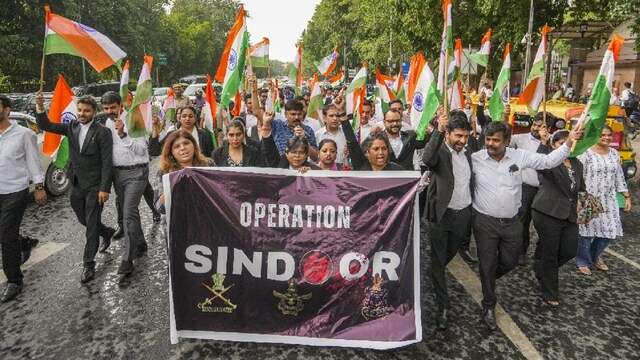59 Politicians to Visit 32 Countries, Delivering India’s Zero-Tolerance Message
In a significant diplomatic initiative, the Government of India is dispatching seven all-party delegations comprising 59 political leaders to 32 countries, starting May 23, 2025. This global outreach aims to convey India’s firm stance against terrorism, particularly in the aftermath of the recent Pahalgam terror attack and the subsequent Operation Sindoor.
Operation Sindoor: A Unified Response to Terrorism
Operation Sindoor was launched on May 7, 2025, as a decisive military response to the April 22 terrorist attack in Pahalgam, Jammu and Kashmir, which resulted in 26 fatalities. The operation targeted terror camps in Pakistan and Pakistan-occupied Kashmir, eliminating over 100 militants associated with groups like Lashkar-e-Taiba, Jaish-e-Mohammad, and Hizbul Mujahideen.
A Bipartisan Diplomatic Mission
The delegations include members from across the political spectrum, reflecting a rare bipartisan consensus on national security. Prominent leaders such as Shashi Tharoor (Congress), Ravi Shankar Prasad (BJP), Supriya Sule (NCP), and Kanimozhi Karunanidhi (DMK) are among those leading the missions. Each team comprises seven to eight members, including at least one woman and one minority representative, and is supported by veteran diplomats.
Delegation Itinerary and Objectives
The seven delegations are scheduled to visit key nations across various regions:
- Group 1: Saudi Arabia, Kuwait, Bahrain, Algeria
- Group 2: United Kingdom, France, Germany, European Union, Italy, Denmark
- Group 3: Indonesia, Malaysia, South Korea, Japan, Singapore
- Group 4: United Arab Emirates, Liberia, Congo, Sierra Leone
- Group 5: United States, Canada, Mexico, Brazil
- Group 6: Spain, Greece, Slovenia, Latvia, Russia
- Group 7: Egypt, Qatar, Ethiopia, South Africa
The primary objective is to engage with foreign governments, policymakers, and think tanks to highlight India’s zero-tolerance policy towards terrorism and to expose the role of Pakistan in sponsoring cross-border terrorism.
Strategic Significance
This diplomatic offensive underscores India’s commitment to combating terrorism on a global scale. By involving a diverse group of political leaders, the initiative aims to present a united front and to garner international support for India’s counter-terrorism efforts.
The inclusion of former diplomats in each delegation ensures that the teams are well-equipped to navigate complex international dialogues and to effectively communicate India’s position. The outreach also serves to counter misinformation and to build strategic alliances in the global fight against terrorism.
Conclusion
India’s deployment of seven all-party delegations to 32 countries marks a proactive step in its foreign policy, emphasizing a collaborative and resolute approach to countering terrorism. As these delegations embark on their missions, they carry the collective voice of a nation determined to uphold peace and security, both domestically and internationally



